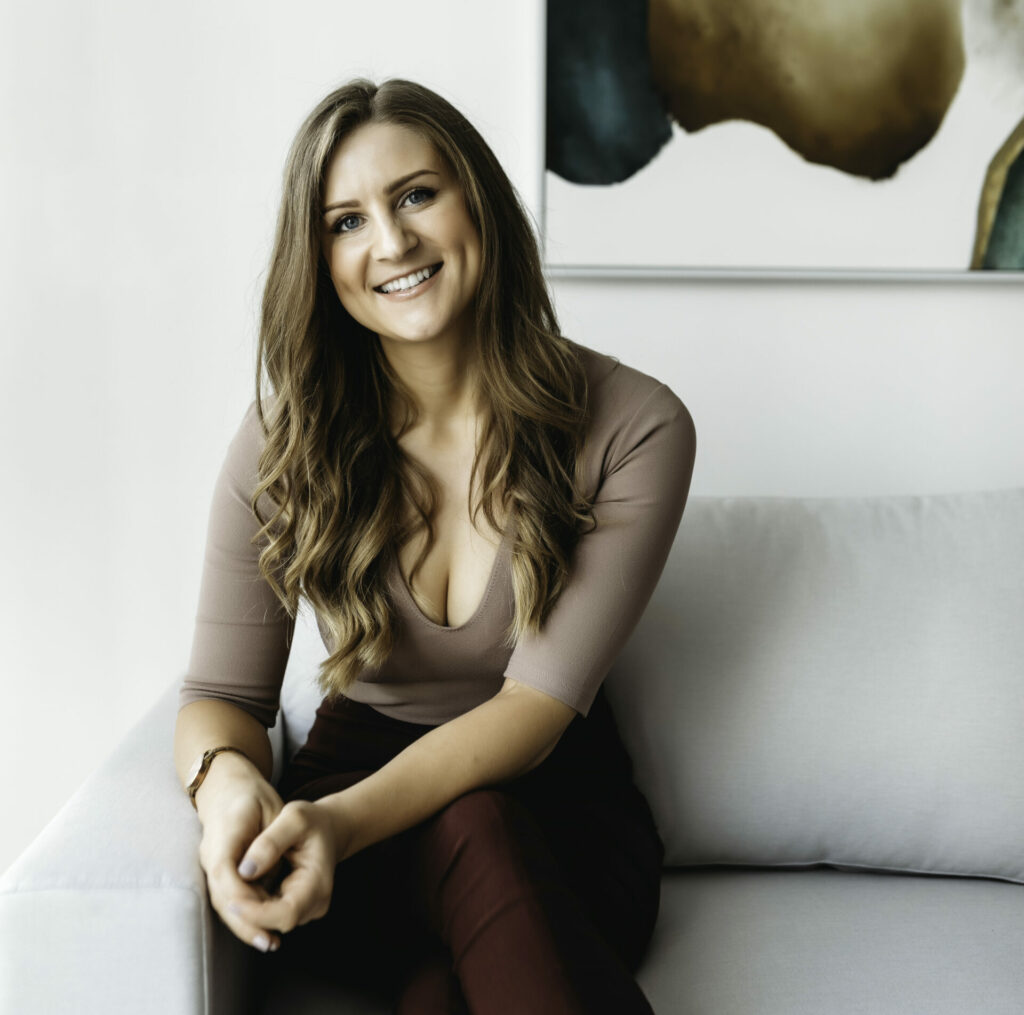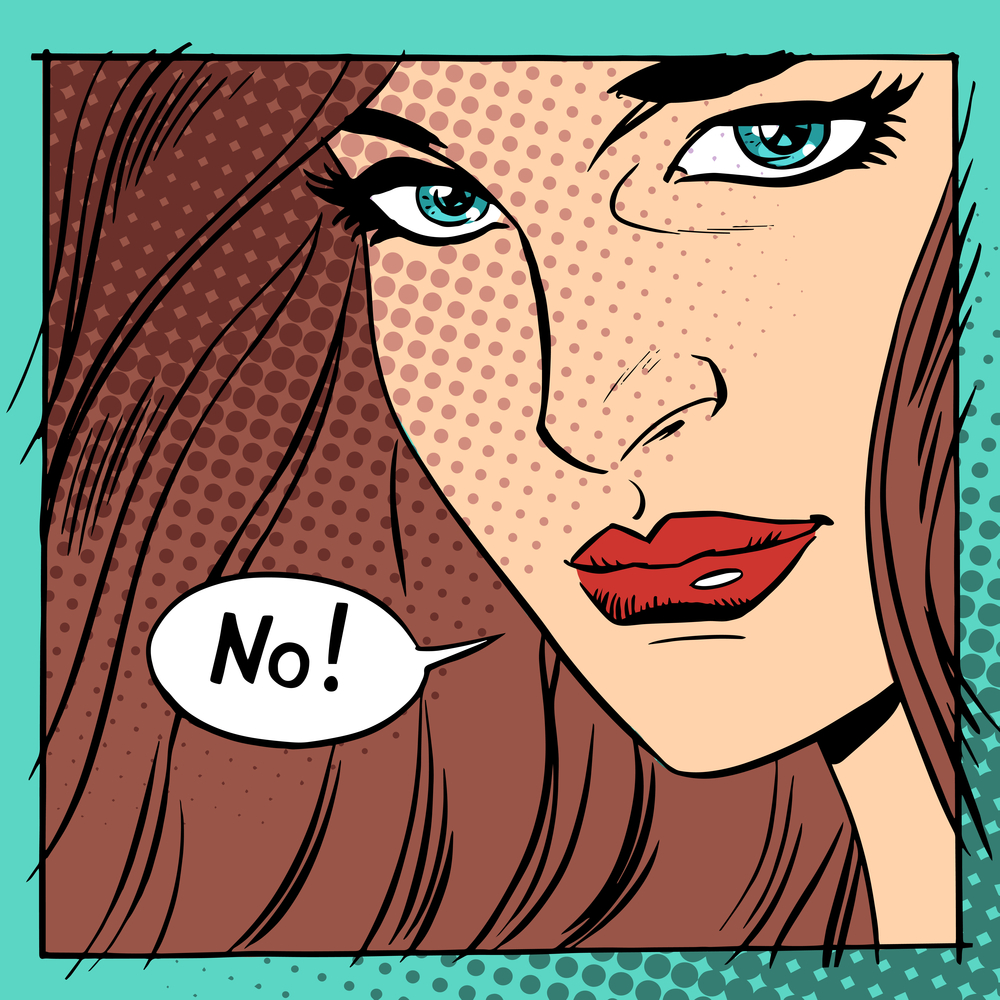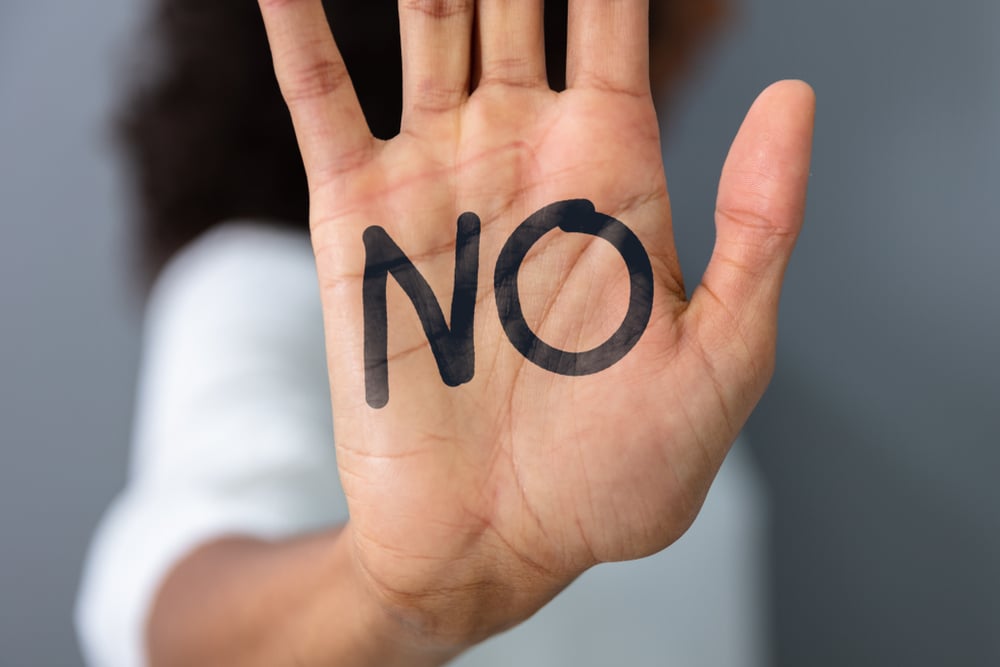In English it’s a two-letter word that trips off the tongue easily and quickly. Yet, whatever language you use, it brings with it so many connotations most of us feel uncomfortable uttering it and, if we can, we go to ridiculous lengths to avoid saying the word ‘no’. We squirm, we dither, we procrastinate, we avoid and we even tell little white lies to feel better about delivering a big, fat NO.
So why is the word ‘no’ such a tricky one? Is it truly a negative in all senses? According to experts, it’s one of the most positive words around. And this tiny word can become our best friend and closest ally if we master the basics. Using it well can liberate us – saying no frees up our time so we spend it doing the things that make us happy, the things we want to do. Warren Buffett, the American business magnate, knows that. He pointed out: ‘Successful people say no to almost everything.’
Motivational speaker and coach Phil Olley believes we dread saying no because we fear the consequences and what people will think of us for turning them down, whether that’s an invitation to a colleague’s 40th birthday party, a ski trip to Switzerland or the chance to take on some extra work when we already feel snowed under.
‘People-pleasing will lead to burnout and resentment. If you’re constantly agreeing to more than you can handle you’ll feel drained. Saying no can protect your energy and ensure you show up fully when needed’
‘We’re afraid others will think we’re not co-operative, and that we’re negative and difficult to deal with,’ says Phil, author of the book Result, Think Decisively, Take Action and Get Results (Pearson). ‘No one wants the reputation of being awkward and unhelpful.
‘We’re frightened we’ll lose friendships, our reputation will be damaged and we’ll be side lined, both at work and in our social lives.’

But surely when we say no to our neighbour’s request to look after their children, the school mum that asks us to bake a cake for a stall, and the manager who suggests we work late or at weekends, we’re saying no to the request, not the person. So why does the issue become so deeply personal, with all those confusing mixed messages?
Self-Care
NLP life coach Kirsty McIntyre, who is based in Dubai, explains: ‘It comes down to people-pleasing. We think the person on the end of our no will be upset by our response. In fact, saying no can be a way of asserting boundaries. It’s a form of self-care.
‘People-pleasing will lead to burnout and resentment. If you’re constantly agreeing to more to than you can handle or showing up to events you don’t want to attend, you will begin to feel drained. Saying no more often can protect your energy and ensure you can show up fully when needed.’
So how do we unravel the whole issue of saying no? Go on your gut feeling and start recognising what a heartfelt yes feels like, advise the personal development experts.
Says Kirsty: ‘When you’re invited to an event or someone asks you to do them a favour, pause for a few seconds, take some breaths and notice what feelings come up. Do you feel a pang of excitement or is there a tension in your chest? If your immediate reaction is positive, then it’s a yes.’
It’s when the reaction isn’t as clear cut that we need to pay extra attention. Sometimes we’re torn between being kind and being a people pleaser. We feel we should help the elderly neighbour with their shopping, or we should go to a colleagues party even though it’s at the weekend and we’re exhausted.
Kirsty adds: ‘If your friend has asked you to look after her dog because she has a family emergency, saying yes might be the inconvenient but kind thing to do and it will ultimately leave you feeling more positive for having done a good deed.
‘However, if agreeing to something you don’t want to do is going to leave you more inconvenienced and burdened than the other person, then it’s not unkind to say no. Think about it. Will your colleague’s night be drastically different if you don’t show up at their party? Chances are they’ll still have a good time, so unless you’ve already committed to bringing the sound system and cake, then you shouldn’t feel bad about declining.’

According to Phil Olley, whether our answer is a yes or a no is dependent on our values and goals – they’re the underlying factor that decides what’s important to us.
‘When an invitation or suggestion is in conflict with our values and goals, it will feel off kilter,’ he says. ‘Clashes of values create frustration.
‘For example, imagine one of your values is fitness and you’re training for a marathon. You’re planning one last long run and an early night when the boss asks you to stay late at work and take a client out to dinner. You don’t want to go out to dinner. Your run is important to you. A good night’s sleep is vital. This is when you need to say no. If you say yes, you’ll resent the time you’re with the client, it will be clear you don’t want to be there and you’ll be frustrated about your running.
‘If your value is family, and you’re invited away on a friends’ holiday, you’ll want to say no because you’d prefer to spend the summer with your partner and the children. If you say yes, when you really don’t want a holiday with friends, you’ll end up having to extricate yourself further down the line, causing all sorts of problems for people’s holiday plans.’

Sometimes we might not be 100 per cent sure our answer’s no. We might say no in the first instance out of fear. Many have turned down a spa day because they’re embarrassed about their cellulite or said no to the gala dinner because they’re shy in big groups of people. But deep down they’d love to go.
‘It’s OK to stall and ask for more information, or get a bit more guidance,’ says Phil. ‘You can say you need the extra details so you know how much of a priority or time commitment the request needs.’
Once we’ve ascertained the answer is a negative for the right reason, how do we deliver our answer when we’re a bag of nerves? Kirsty suggests the way forward is short, simple and polite.
Short and Simple
‘Say: ‘Thanks for the invite. I’m sorry I won’t be able to make it,’ she says. ‘That’s enough. You don’t have to provide justification unless you feel it’s needed. Be direct in your reply and avoid making up excuses.
‘For example, if you use car problems as your excuse for not attending an event, you leave room for people to offer to pick you up on the way, leave the event to drop you home or even pay for your Uber ride. You’d be surprised how people will go out of their way to overcome your excuse when they want you to say yes to something. Keeping it direct avoids leaving room for debate and finding yourself backed into a corner.’
A study by Vanessa Patrick, an associate professor of marketing at the C.T. Bauer College at the University of Houston, and Henrik Hagtvedt, a professor of consumer behaviour at the Carroll School of Management at Boston College in the US, found that the language we use when refusing something is key.
Empowering & Assertive
Their study, published in the Journal of Consumer Research, found that saying, ‘I don’t’ instead of ‘I can’t’ when saying no to people frees us from demands. They concluded saying ‘I can’t’ conjures up uncertainty and weakness, while a definite ‘I don’t’ suggests you have boundaries and you honour them. While one is empowering, the other is psychologically draining.
Phil suggests to say no graciously, we arm ourselves with a few key phrases, including ‘I don’t…’
‘A straight-forward: “Thank you for asking, but no thanks,” is fine,’ he says. ‘You could also say you don’t have the time to give a project the commitment it needs. You could suggest something else you might do, or you could propose someone else. Once you’ve said no, move on. Don’t wait around and explain.’
Once we’ve mastered the art of saying no, we soon recognise the benefits.
The Art of Saying No

‘Saying no assertively allows you to protect your energy, both physically and mentally,’ concludes Kirsty. ‘It will leave you feeling more ownership over your life and outcomes rather than being at the will of those around you, which is a common symptom of victim mode and ultimately leaves you feeling burnt out.’
A final word of warning from Phil Olley: ‘You must be careful that you don’t end up saying no to everything and living a hermit-like existence.

‘Once you get really good at saying no, you could get too comfortable not doing things. If you say no too many times, people will stop inviting you to events or asking you to do anything. Then you’ll end up with an entirely different problem!’













